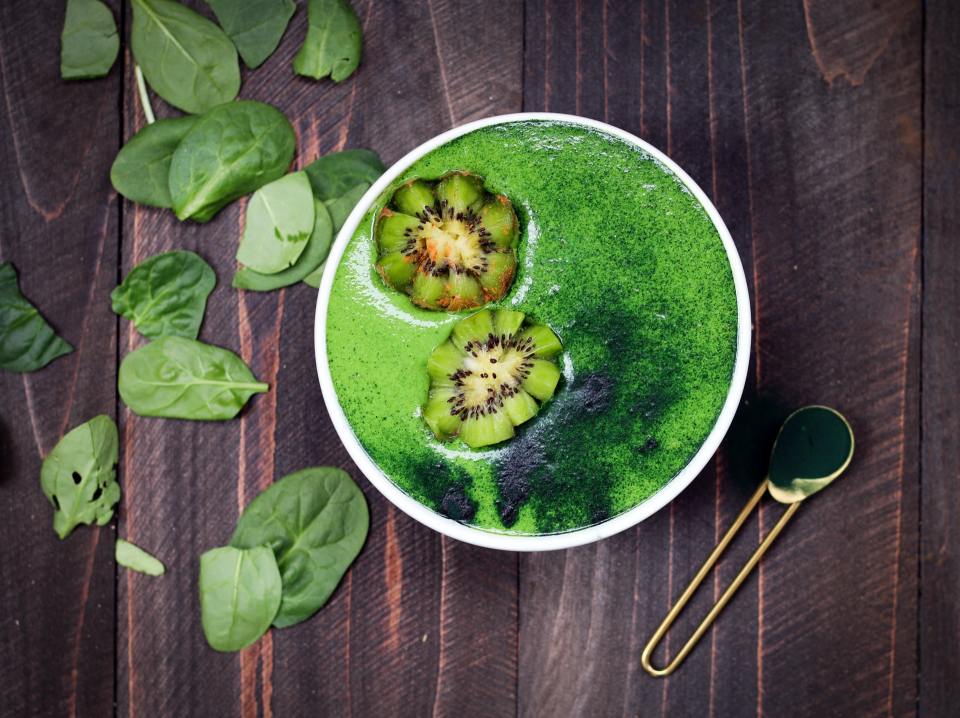
Four actionable tips to help you get back on track after pulling one (or multiple) all-nighter(s). Get that bio-rhythm back on track!
Four actionable tips to help you get back on track after pulling one (or multiple) all-nighter(s). Get that bio-rhythm back on track!
Are you feeling jittery from skipping a night of sleep? Whether it was to study for a university exam, write up a research report, or prepare an urgent work meeting, we’ve all been there.
First, let’s dive into why you currently feel the way you do.
The Effects of Pulling an All-Nighter on Your Body
Time is a weird thing. Depending on what we do, it feels like it’s moving faster or slower. It’s only natural that every now and then, time gets away from us while we’re working on something super-important. Most people have pulled an all-nighter in order to finish a time-sensitive project, be it for work or studies. There wasn’t enough time to do it during the day—because it was bigger than we expected or we spent months prior procrastinating.
However, sleep is essential to extracting and migrating your memories from short to long-term holding. Staying up for so long jumbles up your circadian rhythm, which is detrimental to your ability to concentrate the following day.
Also, your body needs time to rest and recharge. Even if you lie down on your couch doing absolutely nothing but stay awake, it’s not equivalent to sleeping. During the night, your body is working to rebuild your cells and tissues, remove brain toxins, and accumulate fatigue throughout the day—according to Roy Raymann of SleepScore Labs, from an article on HuffPost. It needs sleep to keep you alive.

Feeling tired? Keep on reading!
Photo by Cris Saur on Unsplash
But fear not. Our body is more resilient than one would think. Here are a few tips to help you bounce right back the following day (or even today)!
Detox With Plenty of Water and Greens
Red Bull was my go-to buddy to tackle university exams back in the day. I remember leaving the library (after, of course, revising for the whole night) at dusk, showering, and being just in time for a 9 AM exam—which was killer.
Having too much caffeine in your body is never good, but many of us rely on it to stay awake and hustle. We’re not going to get into the health risks of energy drinks, but if you’re looking to recover from the all-nighter, it’s time to switch that Red Bull for some water. Along with some much-needed R&R, it’s good to drink plenty of water, vegetables, and fruits. Maybe also take a trip to your local grocery store and get yourself some fresh stuff for a smoothy (or just buy one ready, I know you’re tired)!
For snacks, aim to include plenty of protein-rich goodness to refill your body’s energy. Here is a list of 27 food items to revitalize your body.

Ever tried matcha before?
Photo by Kimzy Nanney on Unsplash
Remember what we said about energy drinks? The same rule applies for coffee. Try to cut it down as much as possible—limit yourself to only one cup of coffee.
Caffeine is not bad, as long as you don’t consume it excessively. It helps to increase brain activity and metabolism and adds quite a few other health benefits. And it’s much better than bottled energy drinks!
Schedule a Break Before and After the All-Nighter
If you already know there’s going to be an all-nighter ahead of time, you might want to schedule around it. Plan to sleep a little more the day before—to prepare for the sleep deprivation. Try to add a few hours to your night; power naps are also a good idea, although not easy to execute for everyone when you’re under a lot of stress.
Afterwards, your goal is to get your biological clock back to where it was and balance your circadian rhythm again; it's not rocket science. If you follow all the information listed (consume lean protein, drink plenty, regulate blood sugar, rest well, etc.), you should be good to go again the next day!

Sleep, sleep, and sleep.
Photo by Diana Parkhouse on Unsplash
Spend Some Time With Yourself
Have a self-care day the day after your nightly antics so that you can really look after your mind, body, and soul and help them recoup. Block out social media, communications, and anything that requires heavy thinking. Go for a walk, breathe, and listen to the buzzing city instead of having earphones with pumping music.
Vitamin D deficiency is widespread in certain parts of the world—1 billion people lack this vitamin in their bodies, causing tiredness and fatigue. So, if you can—bathe in some sunshine for the day; if it’s not scorching hot, try to skip out on the shades for the day as well—it’ll help to keep you feeling alert, increase your energy levels, and help you to fall asleep naturally later on.
If you are unsure what to do, we have written an article on 20 things you can do right away, by yourself, today.

Go and explore, by yourself!
Photo by Vidar Nordli-Mathisen on Unsplash
Stress Less at Work
Be it in a professional work setting or academic environment, you stayed up all night because of your job, correct?
There are many ways to deal with stress and a heavy workload. We’ve accumulated many roundup articles on this blog to help you stay motivated and focus better at the workplace. They contain expert tips from many professionals who are on the grind, just like yourself. Check out our collection of PDF utilities as you undoubtedly work with a lot of digital documents. We can assist you with file conversion, editing, and compression so you can fit everything from sample exam questions to crucial work documents inside one email. They may sound like little things, but truth be told, it’s the little things that often stack up over time and finally end up getting done in all-nighter stress fits. We want you to focus on what’s important and hope our tools can help you do that by taking away some of your worries.
Either way, happy recovering!



